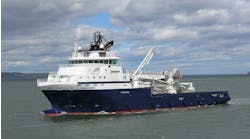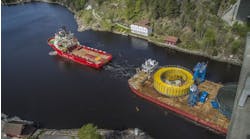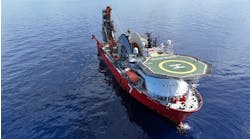The appetite for EPC contracting, certainly where this is equated with lump sum turn-key pricing models, seems to be lost in the face of bad experiences by the contractors. In recent months, several major offshore construction and E&C firms have made it clear that "they are not going to do it anymore." The oil companies favored this model because it gave an opportunity to pass on certain financial risks associated with a project. The large contracting firms also sought after it because they believed that with good project management they would be able to realize the potential upside of a better-than-average profit. As it turned out, these large complex projects cannot be adequately estimated because at the time of bidding the level of uncertainty in many cases is simply too great. The risks include incomplete design leading to costly changes, underestimation of the interface complexities posed by multiple suppliers and subcontractors (particularly when these are forced upon the contractors to accomplish local content), delays caused by host-country politics, and the fact that sometimes the in-house project management skills are overestimated.
It is inevitable, I believe, that more equitable contracting models will be developed that make better use of available talent and allocate the risks to the parties best equipped to understand, manage, and assume such risks. It will take an honest assessment of the skills and talents of all the players in our industry to find the best solution. As long as there are parties ignorant or hungry enough to accept disproportionate risks, this problem will be with us, until everyone gets the message or goes out of business.
The industry has purged many experienced people from its ranks in the last 20 years, so experienced project management talent is hard to find. This problem will only get worse as many aging managers and engineers retire in the years to come. At the same time, the depletion of existing reservoirs is accelerating, and the time required to bring onstream the new fields, many of which are in very deep water, is getting longer. The complexity of projects is growing, so comparatively more talent will be needed. Unless the industry finds a way to excite young engineers to join the oil industry ranks, these trends are going to create a major obstacle to maintaining, let alone increasing, oil and gas production to meet growing demand.
Technology
Technology cannot create oil and gas where it does not exist, but technology can increase the chance of finding it and improve recovery where it is. Technology can also reduce costs and move the boundary of what is economically feasible. Technology development is already focused on smarter ways to explore and drill offshore. In Intec's own area of activity, technology is aimed at enabling production of deepwater finds without the high costs of surface facilities. This involves subsea production concepts using subsea separation, metering, and pumping, which in turn requires bringing and distributing substantial electrical power at such subsea fields. All of these components are in some stage of development and/or application. Gas fields are being developed at ever-greater distances from shore, and with the previously mentioned technologies, oil can also be produced subsea and transported over considerable distances to shore or a shallow-water facility.
As exploration and development are closing in on the 10,000-ft water depth mark, the importance of these new technical options becomes ever greater.
Pivotal events
Whereas some would suggest that the pivotal events in the near future are likely to be of a political nature, I believe that the greatest impact in our industry will be from a shortage of natural gas. One colder-than-normal winter may be enough to bring home the notion that gas production in the US has been declining steadily, and that the recent slow-down in drilling activity will only aggravate this problem. This situation will give great impetus to new pipelines from Alaska and Canada, including arctic regions, and to LNG import. The major gas producers and transporters are getting ready to respond to this looming problem. They are planning LNG import facilities either offshore or beyond the US borders in anticipation of permitting problems for onshore or near-shore plants in the US. In any event, considering the cost and time involved for these new facilities, the shortage may not be solved quickly enough to avoid significant pricing spikes.
William J. Timmermans started his career in pipelines in 1966 working on marine crossings for the expanding Dutch gas trans-mission grid. In 1971, he became an offshore pipeline eng-ineer working in The Nether-lands initially, and since 1975, from a base in Houston, Texas. Together, with three partners, he founded Intec Engineering there in 1984. Since then, Intec has grown to more than 500 staff in eight offices around the world. Timmermans has been president and CEO of Intec Engineering since it was founded.




